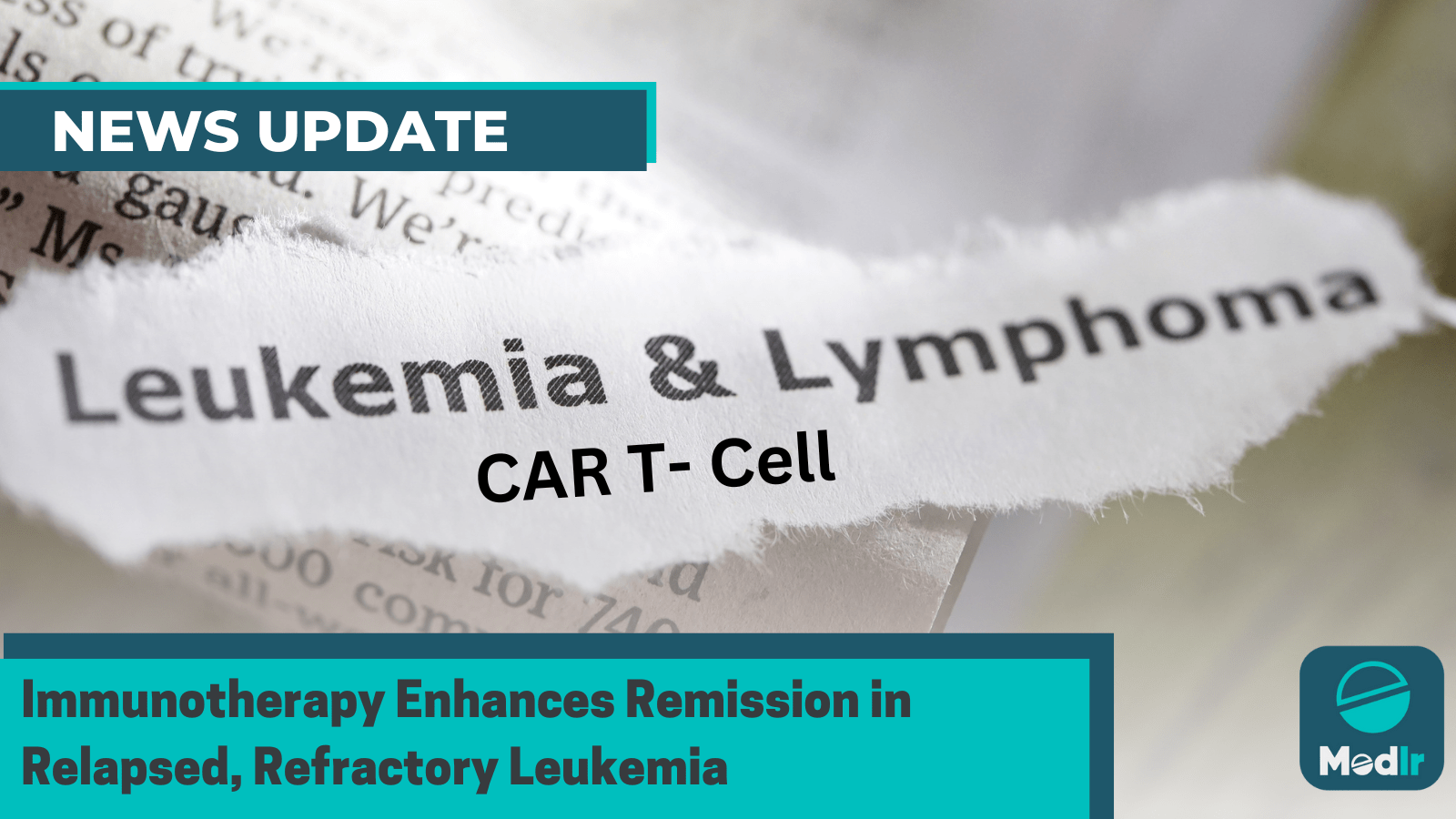Immunotherapy Enhances Remission in Relapsed, Refractory Leukemia
Written by Shaveta Arora
Promising results from a clinical trial show that CAR-T therapy induces remission in relapsed, refractory leukemia, offering hope for CLL/SLL patients. Read more.

According to a recent clinical trial published in The Lancet, patients with relapsed or refractory chronic lymphocytic leukemia (CLL) or small lymphocytic lymphoma (SLL) achieved complete response or remission after receiving a single infusion of chimeric antigen receptor T-cell (CAR-T) therapy.
Shuo Ma, MD, professor of Medicine in the Division of Hematology and Oncology and a co-author of the study, stated that CAR-T therapy actively utilizes the patient's own immune cells to combat cancer. This innovative cellular immunotherapy represents a significant breakthrough in treating relapsed B-cell lymphomas. The study presented our report on the first multi-center investigation of Liso-cel, a CAR-T therapy specifically designed for CLL/SLL.
Also Read - Scientists Finds Out the Secret behind Long-Lasting Cancer Treatment
CLL and SLL, the most common type of leukemia in adults, represent essentially the same disease. They arise from cancerous lymphocytes, a type of white blood cell. In CLL, the lymphocytes originate in the bone marrow, while in SLL, they primarily accumulate in the lymph nodes.
Over the past decade, the treatment approach for CLL/SLL has undergone substantial transformation. Conventional immunochemotherapy has been supplanted by oral targeted therapies such as BTK inhibitors and Bcl-2 inhibitors, which have emerged as the new gold standard in care. This evolution has significantly reshaped the landscape of CLL/SLL treatment.
Despite the high effectiveness of targeted therapies in treating CLL/SLL, there exists a subset of high-risk patients who eventually develop resistance or become refractory to these treatments. Patients who have failed both classes of targeted therapies, known as double-refractory CLL/SLL, face limited treatment options and experience poor outcomes, emphasizing the urgent need for improved therapies.
The objective of the current study was to assess the efficacy and safety of a CAR T-cell therapy, specifically lisocabtagene maraleucel (liso-cel), in a group of 117 adult patients with relapsed or refractory CLL or SLL. These patients had previously undergone an average of five lines of therapy. CAR T-cell therapy involves genetically modified T-cells that are engineered to enhance their ability to identify and eliminate cancer cells with greater precision and efficacy.
During the trial, all patients were administered a single intravenous infusion of liso-cel at one of two dosage levels. Of the 49 patients with double-refractory CLL/SLL who received the higher dosage, the overall response rate reached 47%, with 18% achieving complete response and remission. These results compare favorably to a historical rate ranging from zero to 5%, as stated by Ma.
The authors noted that the time to response was approximately one month. Furthermore, among the patients who achieved complete response and remission, none experienced relapse during a 20-month follow-up period, indicating the enduring nature of the treatment response.
After receiving liso-cel treatment, patients frequently experienced transient immune-related adverse effects. Notably, more substantial adverse events of grade 3, such as cytokine release syndrome (an acute systemic inflammatory syndrome), were reported in 9% of patients. Additionally, advanced neurological events were observed in 18% of patients.
Based on the overall outcomes, it can be inferred that a single infusion of liso-cel has the potential to rapidly induce a durable response in patients with relapsed and refractory CLL or SLL who have already exhausted alternative treatment options. Ma expressed these findings, highlighting the significant implications they hold.